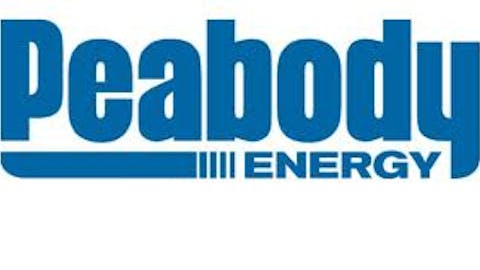Declining readings in China’s PMI index should set alarms ringing in various sectors, especially metals, because it suggests that manufacturing activity is slowing down. Steel, for example, is used in several industrial applications. China is also the main importer of steel in the world. Therefore, I recommend investors to steer away from these companies now.

Low industrial activity equals low steel demand
According to its most recent earnings report, its revenue declined 10% to $4.59 billion, but its net loss shrunk from $219 million, or $1.52 per share, to $73 million, or $0.55 per share. The company pays 1% in dividend to shareholders.
These metrics are not appealing to the value-oriented investor. By the end of the quarter, its free cash flow contracted from $237 million to $117 million. If the free cash flow continues to shrink, the chances of United States Steel Corporation (NYSE:X) initiating a share repurchase program are minimal. Also, I would not expect for the dividend to be hiked any time soon.
The large exposure of United States Steel Corporation (NYSE:X) to China may be harmful to the company. Not only is it harder for United States Steel Corporation (NYSE:X) to export its products to China, but China’s domestic steel production is creating a large surplus. This steel surplus is finding its way to markets in the U.S., Europe, and Australia. Therefore, your portfolio needs to reduce its exposure to this company if you own it.
If steel production companies are struggling, I would recommend you to steer away from coke companies as well.
Low steel production equals low coke demand
SunCoke Energy Inc (NYSE:SXC) reported falling revenue and net income in its most recent earnings report. For the three months ending June 30, its revenue fell from $460 million to $403 million. In addition, its net income contracted from $22.7 million, or $0.32 per share, to $5.5 million, or $0.08 per share.
Its free cash flow declined from $66 million to $28 million due to an investment in the Visa Inc (NYSE:V) and SunCoke Energy Inc (NYSE:SXC) joint venture in India. Although the company will ramp up its coke production, a slowdown in China would put pressure on coke prices. Therefore, I would not expect revenue to rise significantly until the demand for steel starts to pick up.
Further, if the free cash flow continues to decline, you should not expect the company to bring capital appreciation to your portfolio in the form of a dividend and/or share repurchase program. Thus, you should stay away from this company.
If the coke production companies are struggling, you should avoid coal miners, too.
Lower coke demand equals lower coal demand
For the three months ending June 30, 2013, its revenue declined from $1.9 billion to $1.7 billion. This resulted in a decline in net income to $90 million, or $0.39 per share, from $200 million, or $0.75 per share.
One of the issues that concern me is that China’s steel surplus is entering the Australian market. Therefore, the production of Australian steel is likely to decline. Therefore, the coal demand is weak and the prices for the commodity are declining substantially.
You may wonder what that has to do with Peabody Energy Corporation (NYSE:BTU). According to the earnings report, revenue per ton from the Australian sector was impacted the most in the quarter. Revenue per ton in the last quarter was $86.44, compared to $107.55 last year. In the United States, revenue per ton declined by $1 to $22.03.
This is a big deal for the company since almost half of its revenue comes from Australia. Therefore, if coal demand remains weak, especially in Australia, revenue is likely to continue shrinking. This will put pressure on the stock price. Therefore, you should consider reducing your position in Peabody Energy Corporation (NYSE:BTU) as soon as possible.
Final thoughts
China’s PMI index is declining and several sectors are suffering as a result. Therefore, you need to avoid exposure to the steel and coal sector. Right now, I would recommend you to stay away from United States Steel Corporation (NYSE:X), SunCoke Energy Inc (NYSE:SXC), and Peabody Energy Corporation (NYSE:BTU) because the steel surplus that China has is finding markets in Australia, Europe, and the U.S. Consequently, these companies may have issues selling their products in the local markets in the interim.
Robinson Roacho has no position in any stocks mentioned. The Motley Fool has no position in any of the stocks mentioned. Robinson is a member of The Motley Fool Blog Network — entries represent the personal opinion of the blogger and are not formally edited.
The article Why China’s Declining PMI Index Should Worry You? originally appeared on Fool.com is written by Robinson Roacho.
Copyright © 1995 – 2013 The Motley Fool, LLC. All rights reserved. The Motley Fool has a disclosure policy.


